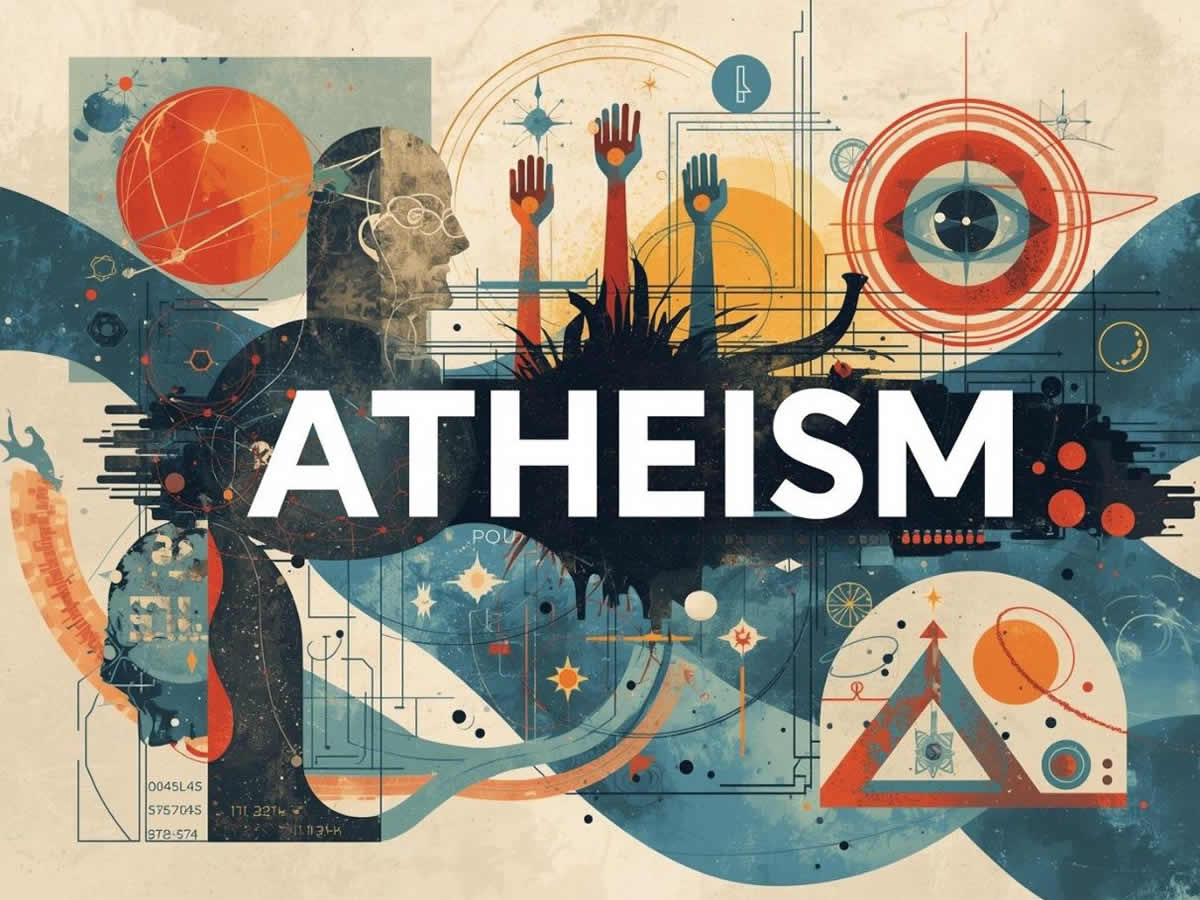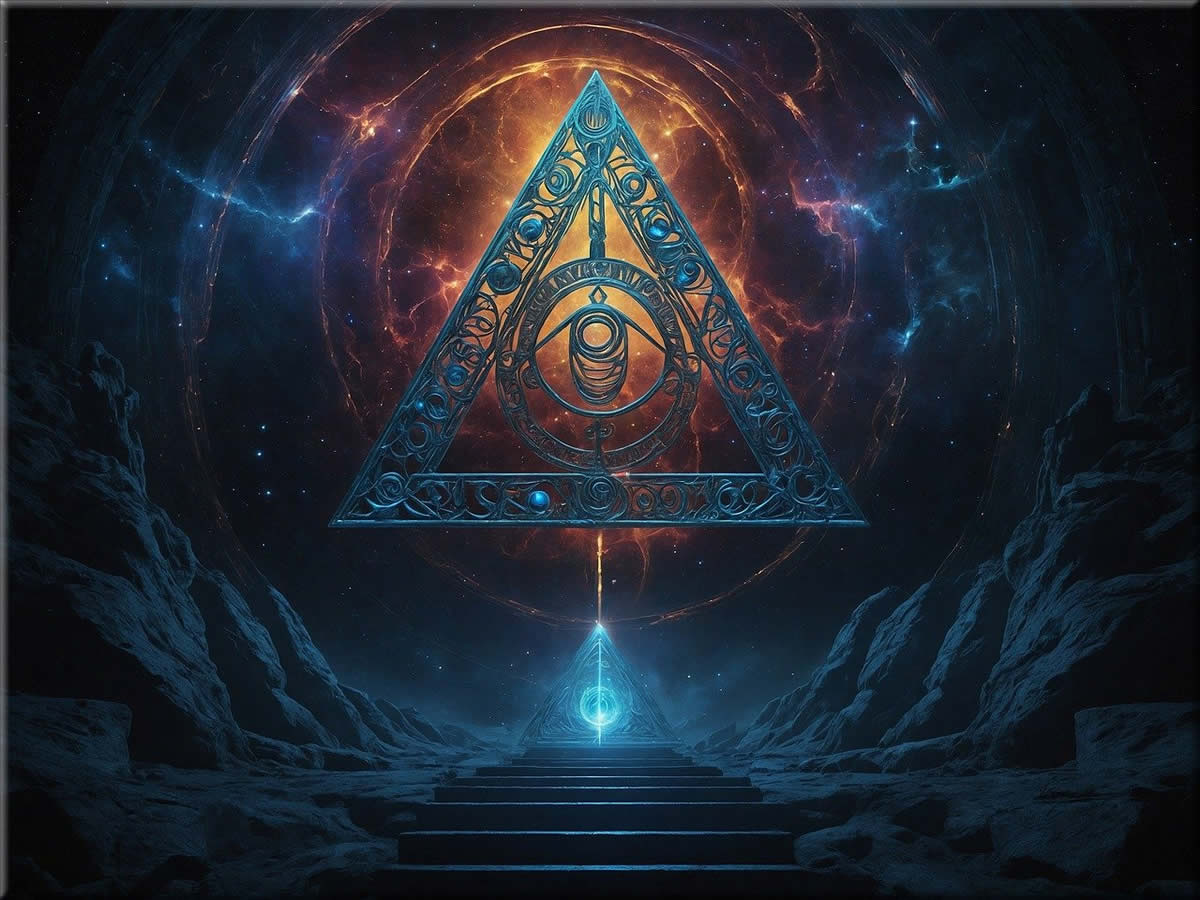
Understanding Atheism: A Guide For Open-Minded Seekers
Understanding atheism begins with clearing up common misconceptions. Many folks mix up atheism with beliefs like agnosticism or assume it’s a rejection of spirituality altogether. At its core, atheism is simply the absence of belief in deities. It’s not necessarily an anti-religion stance or a doctrine with rituals and dogma. A multitude of reasons could explain why someone identifies as an atheist—from personal convictions to philosophical beliefs.
In today’s diverse world, grasping atheism’s role is more crucial than ever. With societies becoming more interconnected, recognizing and respecting differing beliefs can help promote harmony. Many atheists advocate for secularism, emphasizing the importance of keeping public policies neutral in a religious sense to ensure fairness for everyone, regardless of their beliefs.
Atheistic communities are incredibly diverse. Some atheists are vocal activists, while others quietly live their lives without religious influence. There’s a wealth of variation within atheism—some folks express it through humanistic principles, others through secular or scientific perspectives. This wide-ranging spectrum counters the stereotype that atheists form a monolithic group.
When exploring atheism, it helps to approach with an open mind and a willingness to engage with different perspectives. This attitude not only aids in dismantling stereotypes but also enriches one’s understanding of the varied tapestry of human belief.
The Evolution of Atheistic Thought: From Ancient to Modern Times
Atheism’s journey through history is both fascinating and enlightening. In ancient times, skepticism about deities wasn’t unusual, but it often simmered under the surface in religious societies. As empires expanded and philosophical inquiry grew, more individuals began voicing their doubts. Thinkers from ancient Greece, like Democritus and Epicurus, questioned the divine narratives of their day.
The Enlightenment era marked a significant turning point. With the rise of reason and science, figures like Voltaire and Hume challenged religious orthodoxy, emphasizing rationality over faith. This period planted the seeds for modern atheistic thought, prioritizing evidence and scientific understanding.

Fast forward to the 19th and 20th centuries, and atheism gained momentum. The writings of Karl Marx, Friedrich Nietzsche, and Sigmund Freud questioned the role of religion in society, suggesting alternatives that resonated with many searching for new ways of understanding the world. These thinkers weren’t just skeptics; they proposed comprehensive worldviews that didn’t rely on the supernatural.
Pivotal moments throughout history helped cement atheism’s place in modern society. For instance, the publication of Charles Darwin’s ‘On the Origin of Species’ provided a naturalistic explanation for life, prompting many to reconsider traditional religious beliefs. Events like these, coupled with increasing scientific discoveries, bolstered the acceptance and growth of atheistic perspectives.
Today’s atheistic thought continues to evolve, shaped by global shifts and challenges. In regions where religious dogma heavily influences policy, atheistic arguments for secularism strive for equality. Simultaneously, online platforms allow for the rapid exchange of ideas, fostering new discussions and advancing atheistic philosophies.
Understanding the historical evolution of atheism provides valuable context for its modern expressions. It reminds us that atheism isn’t a static belief system but a dynamic response to changing intellectual and cultural landscapes.
Reasons for Believing: Exploring the Foundations of Atheism
People choose atheism for a variety of reasons, each unique to personal experiences and philosophies. For some, it’s about aligning their beliefs with scientific reasoning. The emphasis on empirical evidence and transparency appeals to those who see science as a tool to explain the mysteries of the universe without invoking supernatural forces.
Cultural influences also play a significant role. In regions where religion is deeply interwoven with cultural identity, some individuals may find atheism a way to challenge established norms or embrace a global perspective. This push for artistic exploration and identity formation can lead one down the path of atheism.
Social dynamics often influence atheistic beliefs. In open societies, the mere exposure to different worldviews and lifestyles can nudge someone towards considering atheism. On the flip side, environments where religious beliefs are enforced can inadvertently foster atheism as a counter-response.
The Book of Wisdom is a must-have book for every free-thinker and truth-seeker. It offers a wealth of knowledge, encompassing both surface-level truths and deep, hidden insights from the esoteric realm.
Philosophical curiosity drives many to atheism as well. Some folks dive deep into existential questions about life’s meaning and purpose without resorting to traditional religious answers. These philosophical ponderings encourage a more individualized exploration of morality and ethics.
At the heart of these choices is the desire for authenticity and autonomy. Many atheists prize the freedom to form beliefs based on personal insights rather than inherited doctrine. It’s not just about rejection but also about crafting a worldview that resonates personally.
Understanding these motivations helps dispel the notion that atheism is simply about denying religion. It’s a complex belief system grounded in personal, cultural, and intellectual exploration, often aiming to constructively contribute to discussions about meaning, ethics, and existence.
Atheism Around the World: Global Perspectives and Variants
Atheism presents a fascinating mosaic of interpretations globally, shaped by cultural, societal, and political factors. In countries with a strong secular tradition, like Switzerland, Sweden, or the Czech Republic, atheism is often viewed as a mainstream choice, reflecting societal norms that prioritize personal belief freedom. In these regions, secular humanism influences public policy, emphasizing equality and subjective freedom.
Conversely, in areas where religion is deeply rooted in national identity, atheism can face significant resistance. In countries like Saudi Arabia or Pakistan, religion plays a dominating role in both public and private life. Here, atheism might be perceived as controversial or even dangerous due to legal and social ramifications. Despite this, there are brave voices from these regions advocating for secular discussions and questioning traditional assumptions.

Some regions showcase notable examples of atheistic political influence. For instance, in China, the government promotes state atheism, with religious belief seen as incompatible with the ruling Communist ideology. This top-down approach contrasts with grassroots atheism seen in more democratic nations, where personal choice prevails.
The internet plays a crucial role in connecting atheists globally, creating a virtual community that shares experiences and amplifies voices from diverse backgrounds. Online platforms help foster discussions that push cultural boundaries, enabling atheists to engage in dialogue that may be restricted offline.
Success stories of secular movements can provide inspiring blueprints for promoting atheism and secularism. For example, the Rationalist Movement in India furthers scientific temper and skepticism, frequently challenging superstitions through public engagement.
Recognizing these variations helps us appreciate atheism’s rich tapestry. It underscores the importance of context when discussing atheism, as what it means to be an atheist can differ vastly depending on where in the world one stands.
Common Challenges and Misunderstandings Faced by Atheists
Atheists often navigate a world where misconceptions and misunderstandings abound. A significant challenge is overcoming societal stigma. In many communities, declaring oneself an atheist can lead to ostracism, impacting personal relationships and career opportunities. This stigma stems from entrenched stereotypes that paint atheists as lacking morals or being anti-religion, which isn’t true for most.
Building community is vital for many atheists to cope with these pressures. Secular groups and meetups offer a sense of belonging and shared understanding. They provide spaces where one feels free to express doubts, exchange ideas, and find support without judgment. These communities can be particularly vital in areas where atheism is less accepted.
Volume 2 continues the profound themes introduced in the predecessor even deeper into the complexities of existence and the pursuit of knowledge, encouraging readers to question established beliefs.
Atheists often grapple with internal challenges, too. Without a religious framework, existential questions about purpose and meaning can feel daunting. While some find solace in science or philosophy, others turn to humanistic values to guide their life’s purpose. The journey of discovering what personally resonates can be as varied as individual experiences.
Facing misconceptions head-on requires clear communication and empathy. Efforts to engage in respectful dialogue with individuals of faith can help dismantle harmful stereotypes. Atheist allies can play a critical role by listening, understanding, and advocating for secular voices, facilitating a more inclusive environment for all beliefs.
The importance of these discussions is broader than just atheism itself. It’s about fostering a culture where diverse beliefs can coexist respectfully, allowing everyone the freedom to explore and express their convictions openly. This inclusivity helps pave the way for mutual respect and understanding across diverse worldviews.
The Future of Atheism: Emerging Trends and Potential Impacts
Atheism is continually evolving, influenced by global changes and technological advances. As connectivity increases, so does the exposure to diverse beliefs, fostering a broader acceptance of atheistic perspectives. This interconnectedness offers atheists a platform to share experiences and ideas, increasing awareness and understanding worldwide.
Emerging trends suggest a rise in secular advocacy, with more people pushing for the separation of religion and state. This movement champions policies ensuring religious neutrality in public spheres, aiming to protect personal beliefs while promoting equality. As societies embrace this evolution, the potential for positive societal shifts grows.
Technology is a game-changer. With the proliferation of information online, individuals have unprecedented access to philosophical debates, scientific discoveries, and diverse viewpoints. This accessibility empowers people to question traditional narratives and explore alternative worldviews, including atheism.

Atheism’s role in shaping cultural and social dynamics is becoming increasingly significant. As secular perspectives enter mainstream discussions, they encourage critical thinking and open dialogue. By fostering environments that value evidence and empathy, atheists can contribute positively to discussions on ethics, morality, and public policy.
Looking ahead, the impact of these developments on atheism’s future holds promise for greater inclusivity and understanding. As atheism continues to assert its place as a legitimate worldview, it invites others to consider belief systems grounded in reason and individual exploration.
In conclusion, understanding atheism today requires recognizing its place within a rapidly changing world. By embracing open dialogue and mutual respect, we can ensure that atheistic voices continue to enrich society’s diverse tapestry, contributing valuable insights into life’s profound questions.
Related Topics













